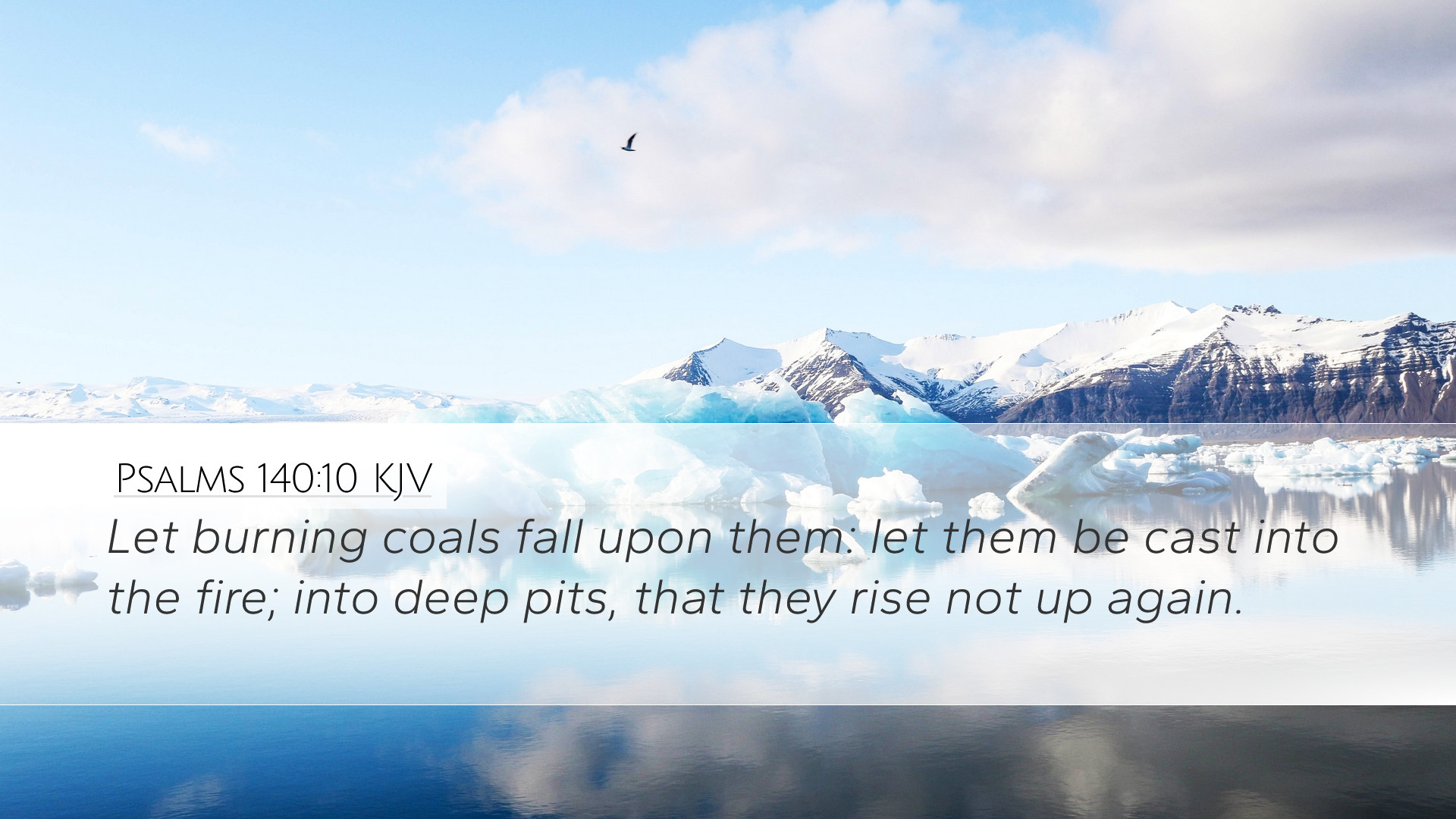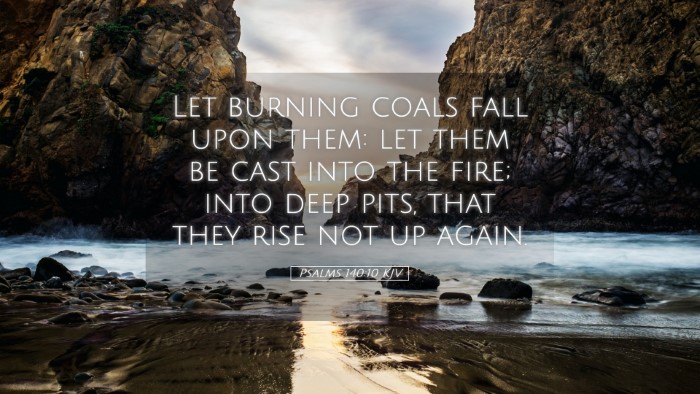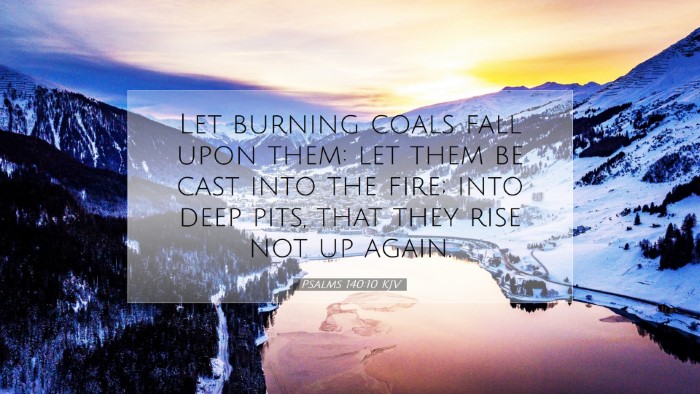Commentary on Psalms 140:10
Psalms 140:10: "Let burning coals fall upon them: let them be cast into the fire; into deep pits, that they rise not up again." This verse presents a striking image of divine judgment and the fervent desire for justice in the psalmist's plea against the wicked.
Overview of Psalms 140
This Psalm is a prayer of David seeking deliverance from the wicked and their devices. It reflects the turmoil and danger he faced, spotlighting themes of oppression and divine justice.
Context and Background
The psalmist, traditionally understood to be David, engages in a heartfelt cry against those who scheme against the righteous. The historical context may reflect David's own experiences with adversaries, such as Saul or Absalom, though exact circumstances are not specified.
Exegesis of Key Themes
Central to this verse is the invocation of divine judgment upon the wicked. This reflects a broader biblical theme where God is seen as a righteous judge who acts against evil.
- Divine Justice: The prayer for burning coals symbolizes God’s purification and judgment. It implies a wish for them to suffer the consequences of their actions.
- Destruction of Evil: The phrase "let them be cast into the fire" suggests a total and irrevocable destruction of their power and influence.
- Hopelessness of the Wicked: "That they rise not up again" conveys a desire for the eradication of wickedness so that it no longer threatens the innocent.
Commentary Insights
From Matthew Henry
Henry emphasizes the seriousness of invoking such judgments upon others. He notes the stark imagery serves as a reminder of God’s ultimate authority over justice. The "burning coals" are indicative of a severe judgment, and this reflects the weight of sin that the wicked bear.
Insights from Albert Barnes
Barnes elaborates that the cursing of the wicked can be seen as an expression of the psalmist's frustration rather than a personal vendetta. He argues this reflects a universal truth about evil and God's intervention. The prayer is not merely vindictive but seeks to uphold God's righteousness on earth.
Thoughts from Adam Clarke
Clarke explains that the use of "burning coals" relates to ancient practices where coals were used to punish offenders, emphasizing that the psalmist’s desire for justice is rooted in a profound understanding of moral order. Clarke infers that while such a prayer may seem harsh, it reflects the righteous indignation against persistent evil.
Theological Implications
This verse raises significant theological considerations regarding prayer, judgment, and the nature of God. It challenges pastoral leaders and scholars to reflect on the balance between seeking justice and embodying grace.
- The Nature of God’s Justice: The psalm reminds readers that God's justice will prevail, often in ways beyond human comprehension.
- Prayer as a Reflection of the Heart: This passage illustrates how deeply personal grievances can inform prayers and how the righteous may long for justice.
- Call for Reflection: Pastors and theologians are encouraged to consider how prayers for justice align with the call to love and forgive.
Practical Application
For practitioners, Psalm 140:10 can serve as a powerful reminder of the importance of prayer in seeking divine intervention against injustice. Visitors to the text are encouraged to engage with its themes of justice and righteousness while contemplating their own responses to evil in the world.
- Encouraging Forgiveness: While seeking justice, believers should also be prompted towards forgiveness, considering Christ's teachings.
- Understanding Justice: Recognizing the thin line between seeking justice and harboring resentment may lead to deeper spiritual maturity.
- Engagement in Social Justice: Emphasizing the call to stand against systemic evil as a communal responsibility reflects a holistic approach to faith.
Conclusion
Psalms 140:10 encapsulates the complexity of desiring justice while grappling with the call to love one's enemies. Through the combined wisdom of notable commentaries, modern readers can extract both solemn warnings and a profound reminder of God's sovereignty in matters of justice.


